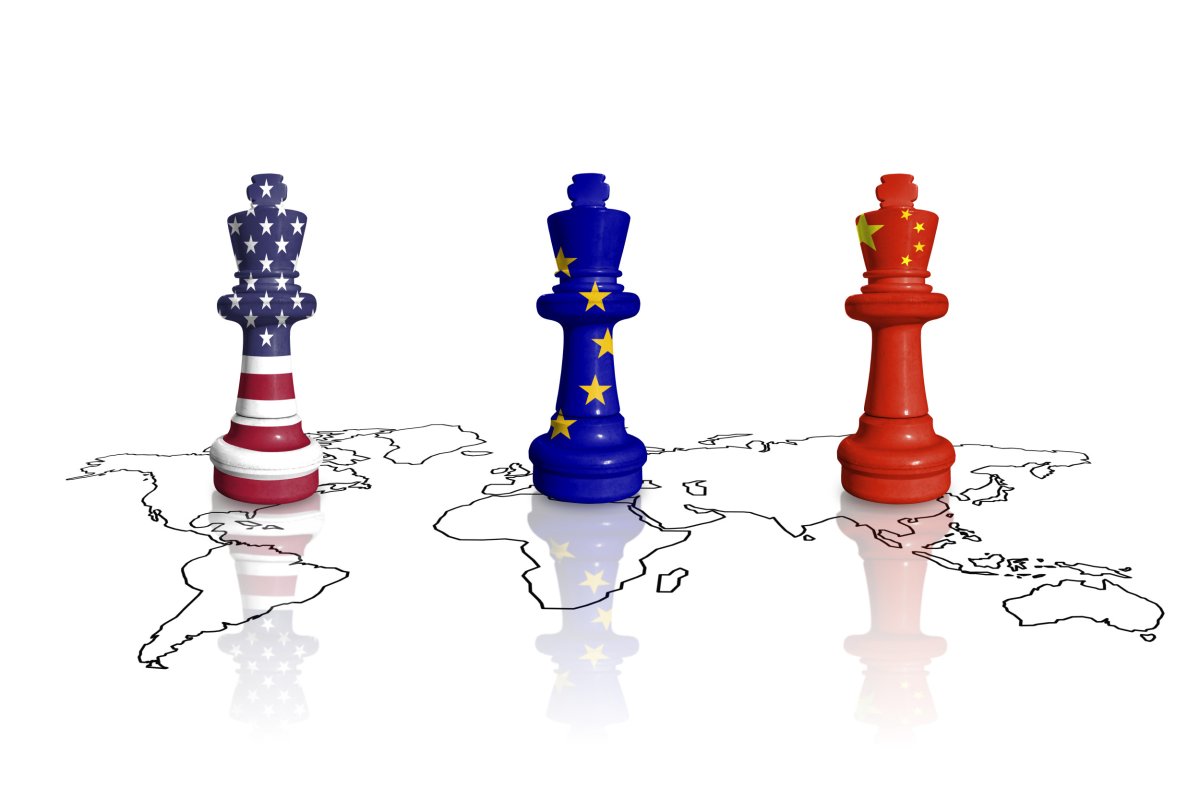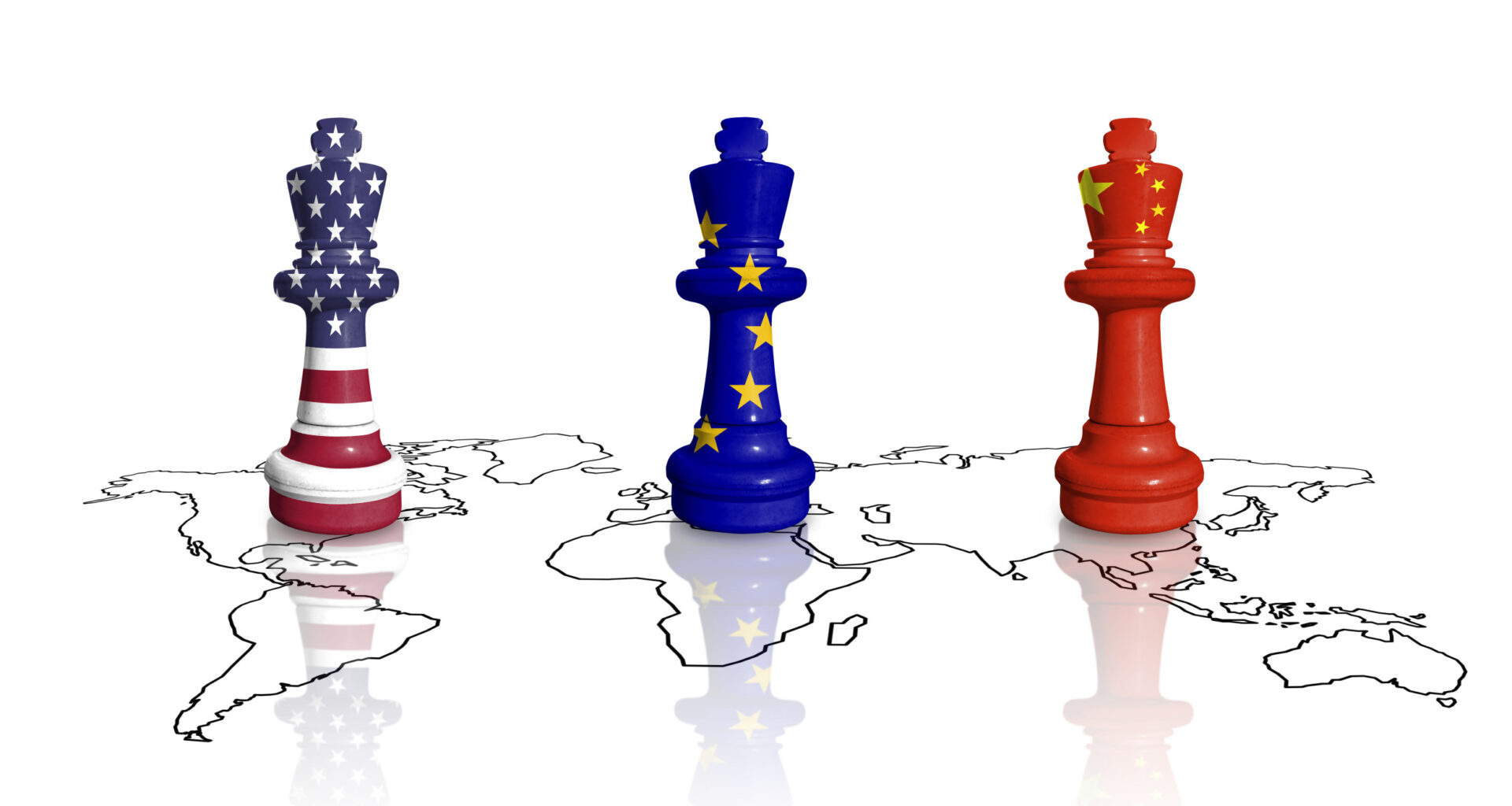Chinese Foreign Ministry spokesperson Lin Jian on Monday brushed off European Union complaints about treatment by Beijing, instead touting half-a-century’s progress in economic ties.
However, recent remarks by the EU‘s top envoy suggest a thaw may be elusive—even as Beijing courts Brussels in a bid to capitalize on a growing rift with the United States.
Newsweek reached out to the European Commission and China’s Foreign Ministry with emailed requests for comment.
Why It Matters
On May 6, China marked 50 years of economic ties with the 27-member European Union—collectively its largest trading partner—amid a fraught global trade landscape.
Many EU member states were among the scores of countries targeted last month by U.S. President Donald Trump‘s sweeping tariffs—now subject to a 90-day pause. Yet concerns over Chinese economic policies remain—from China’s state-subsidized electric vehicle exports to intellectual property rights concerns.
What To Know
Speaking at a Shanghai event on Friday, EU Ambassador to China Jorge Toledo echoed the long-standing concerns of many European firms about preferential treatment of local competitors in the Chinese market.
“We have not been taken seriously when it comes to trade barriers,” Toledo said. “Market access barriers are not going down. They’re going up.
“We strongly feel that we not only do not have a level playing field for our companies in China, that the situation is not improving … there is something that has to be done,” Toledo added.

The U.S., European Union, and Chinese flags as chess pieces on a world map.
The U.S., European Union, and Chinese flags as chess pieces on a world map.
Tomas Ragina/Getty Images
Asked to respond during the Chinese Foreign Ministry’s regular press briefing, spokesperson Lin Jian sidestepped the criticism and focused on positive developments, citing the more than 300-fold increase in bilateral trade since ties were normalized in 1975 and China’s visa-free policy for most EU member states.
“The China-EU Comprehensive Strategic Partnership has not only brought tangible benefits to the nearly 2 billion people in China and Europe but also set a fine example for mutually beneficial cooperation in the era of economic globalization,” the spokesperson said.
The trade dispute between China and the EU escalated last October after Brussels raised tariffs on Chinese electric vehicles to as high as 45.3 percent, citing concerns over overcapacity that undercuts local manufacturers.
China rejected the accusation and responded with new duties on imported brandy from the EU.
The two sides also remain at odds over material support for Russia’s invasion of Ukraine, with European officials saying Chinese authorities haven’t done enough to curb dual-use exports that support Moscow’s war machine.
On April 30, the EU announced China had lifted sanctions imposed on five European Union lawmakers in 2021 over their criticism of alleged human rights abuses against the Uyghurs and other Muslim minorities in Xinjiang.
The move was widely viewed as part of a Chinese charm offensive to capitalize on tensions with the Trump administration.
What People Are Saying
Grzegorz Stec, analyst with the Mercator Institute for China Studies’ Brussels office, wrote in February: “Beijing is betting that pressure from Washington will send Europe into the arms of China to counterbalance trans-Atlantic tensions.
“Despite such views from Beijing, the lacking trust and persisting fundamental divergences of interests between China and Europe, even with Trump in the picture, mean there is a limit to any potential rapprochement.”
What Happens Next
It remains to be seen whether China will take substantive steps to address European trade grievances and entice more EU firms to expand their footprint in the country.
Also uncertain is how Beijing’s ongoing trade negotiations with Washington might impact its relationship with Brussels.
